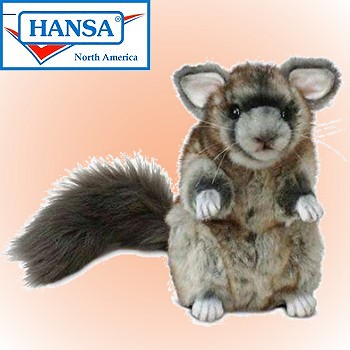|
|
Rodents and their Teeth: Taking good care of your Pet
As you may or may not know, rodents have teeth that never
stop growing, because the primary diet of all or at
least nearly all rodents, is rough plant materials. These are
like seeds and barks. If rodent teeth stopped growing once they
came in, as ours do, rodents might wear off their teeth
entirely and starve to death before they were a few years
old. Instead, as the teeth are worn down, more teeth are
growing out.
But because of this fact, rodents must keep their teeth
ground down by gnawing wood and eating the proper types of
food or the teeth can grow up or down into the opposing jaw
and cause infection or block the animal from eating, and
have on occasion even killed the animal by piercing its
brain. Since your rodent pets live in captivity, it is up to
you to provide them with the right types of food and toys to
help them stay healthy and to keep their teeth healthy and
you must control their travels in your home to keep them
from gnawing and damaging your property.
Careful research is necessary to make sure that you are
providing your rodent pets with the proper types and
quantity of food and toys for their optimum health. For
example, you probably don't have to worry much about
providing many appropriate toys for your pet Guinea Pig, but
you should know that Guinea Pigs need to graze constantly to
stay healthy. So you will need to provide good quality hay
non-dusty meadow hay constantly for your pet. The same is
true for Degus and Chinchillas, and this is very important
to help them keep their molars ground down properly as well
as for their nutritional health.
Therefore, if you are also feeding these rodent species a
rodent mix, you should limit the amount of mix you provide,
to make sure that they eat their hay. And since many rodents
hide food all over their cages, you probably should feed
only small amounts at a time to monitor what they are
actually eating. Most rodents should also eat some fruits
and vegetables regularly, so check with your vet or a book
or an experienced friend as to exactly the best diet for
your species of rodent.
Weighing your pet regularly is another good way to make sure
it is eating enough and is not losing weight. If you notice
a problem, check with your veterinarian.
Different types of rodents need to do more or less gnawing
than other types, and so the likelihood of destructive
damage from their gnawing varies accordingly. Guinea Pigs
are probably the least destructive of the common rodent
pets, and Gerbils and Jirds are probably the most likely to
try to gnaw their entire environment. Most rodents should
have gnawable wooden (not plastic) toys or pumice stones
(pet shops and the Internet offer many to choose from.) in
their cages.
If you allow your rodent pet out of its cage, please be
aware that you will need to watch it carefully the entire
time it is loose. All rodents will gnaw pretty much anything
they see, and that includes your wallpaper, the telephone,
remote control, furniture legs, electric cables,
houseplants, or woodwork. Besides the damage to your
belongings, electric cords can cause electrocution, house
plants can be poisonous, paint can contain lead, and rubber
appliance feet can block intestines, among other things.
One thing that can help is to provide a pile of new toys
whenever they are out. Give them things like paper towel
rolls, empty food containers, pieces of nontoxic wood, pine
cones, rodent snack cubes hidden around the room, etc. They
may be too busy to eat the furniture.
You are not relieved of rodent watching duty however. When
rodents of any species are loose in the house, they should
be supervised.
Stuffed Chinchillas Ready to Play

|